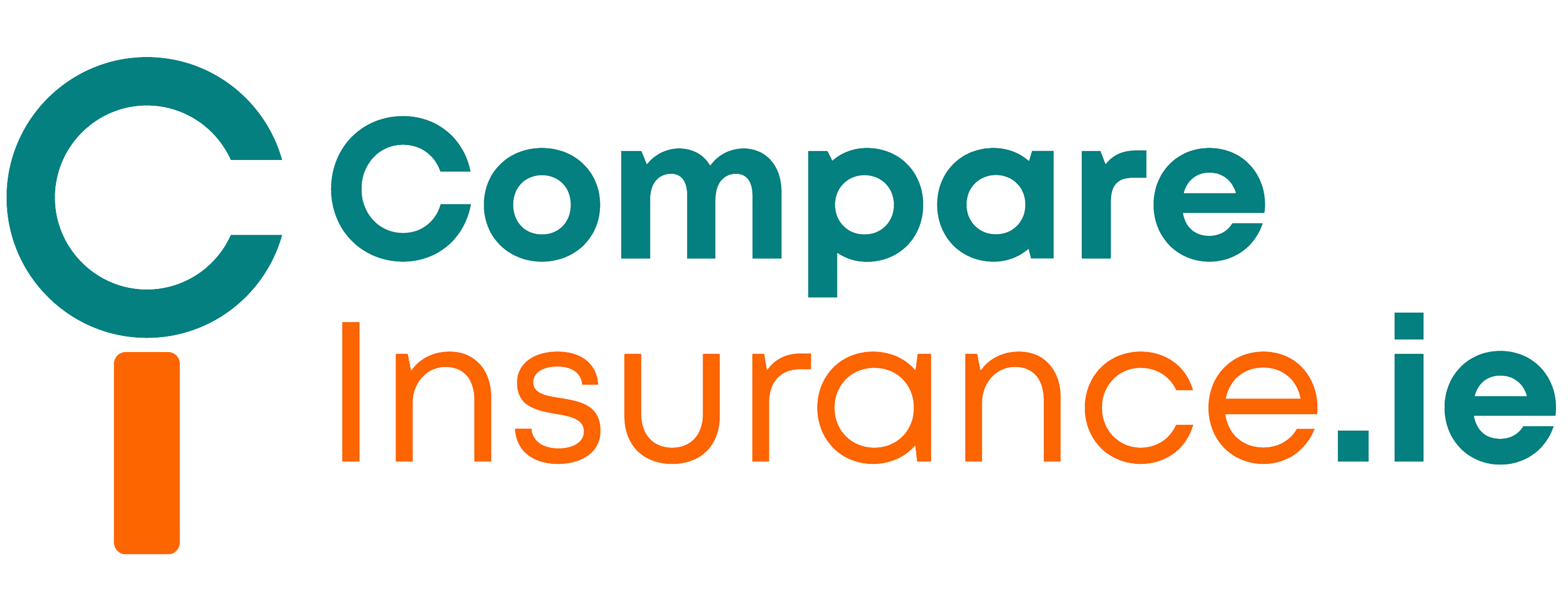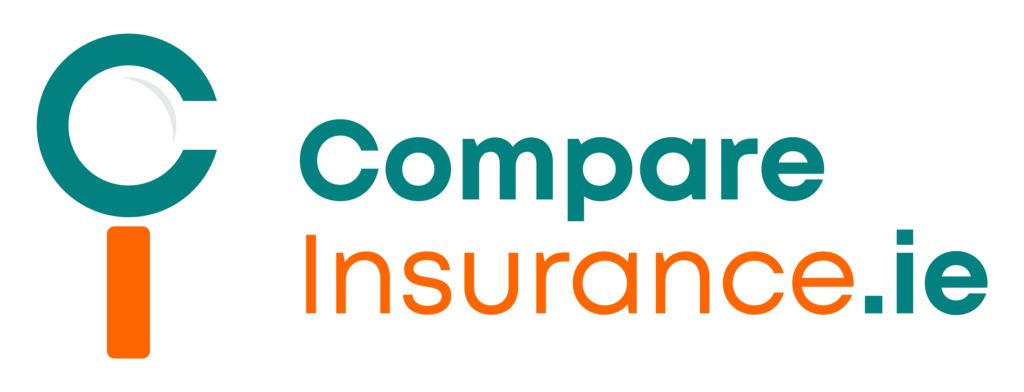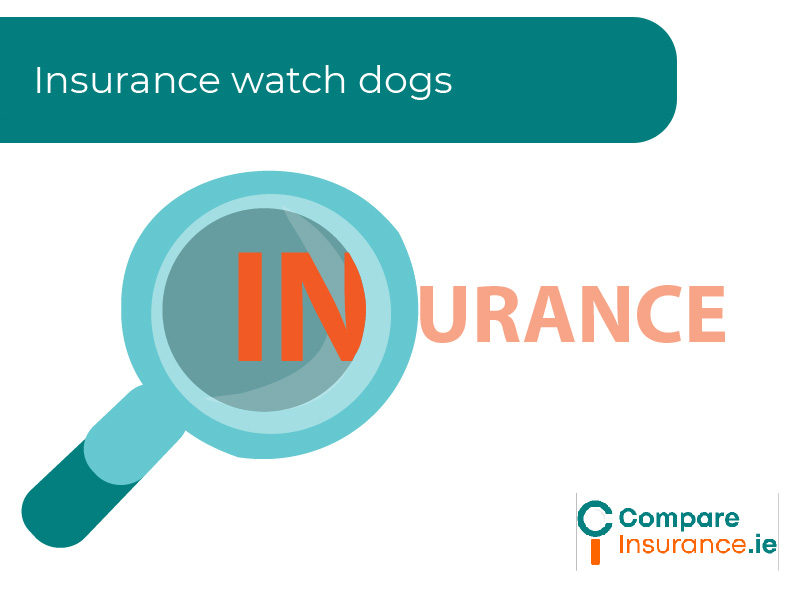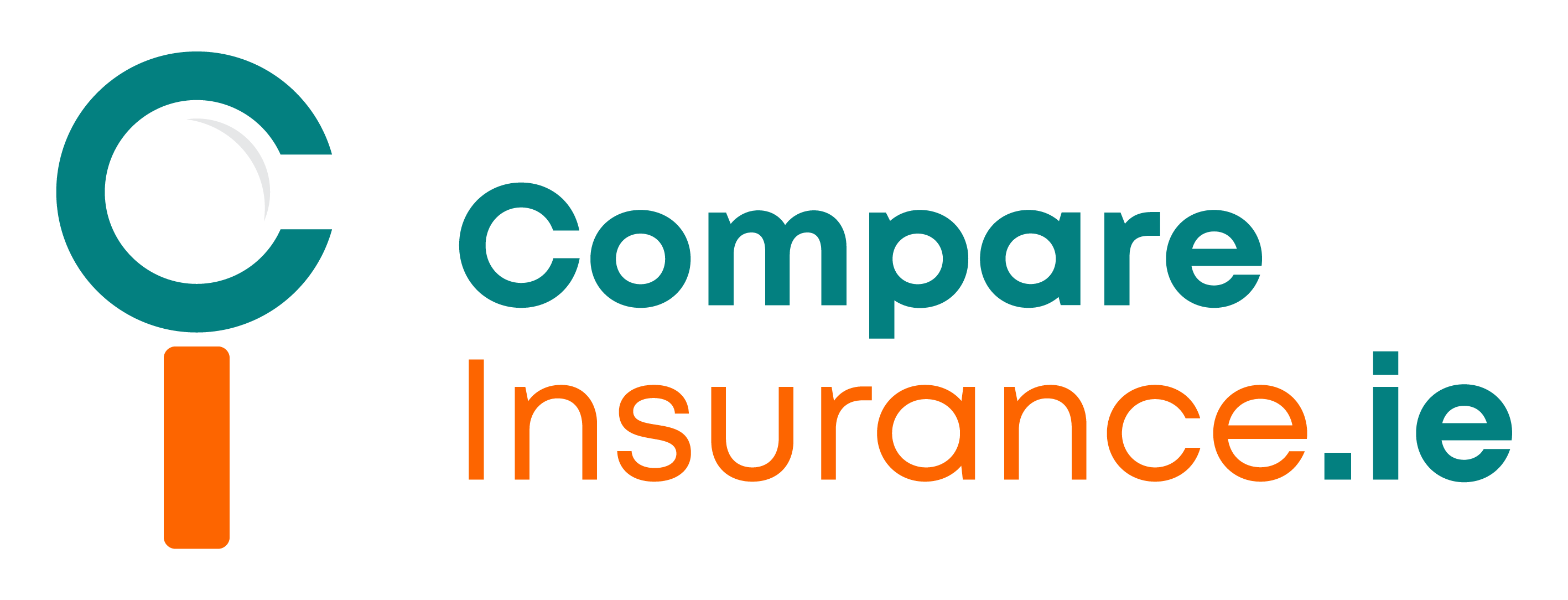An Insurance watchdog provides guidance to all stakeholders in the industry and maintains standards for the insurance industry.
There is a huge complexity and range of insurance products available on the Irish market. It can be bewildering for consumers in trying to make decisions on what products to purchase and to choose an insurance provider.
There are a number of important functions fulfilled by the insurance company watchdogs such as ensuring a company offering insurance to consumers is a legitimate register provider of insurance products and also providing an avenue of redress for consumers who are unhappy with the service or product they purchased from an insurer.
Table of Content
Insurance Watchdogs in Ireland
There are a number of bodies who act as insurance watchdogs in Ireland.
They are responsible for supervising the operation of insurance companies in Ireland as well as those offering information and/ or support for consumers in purchasing insurance and making a complaint about their insurance provider.
These include:
The insurance industry in Ireland, for insurance companies and insurance intermediaries, is heavily regulated by EU and Irish legislation and these statutory bodies offer a range of robust protections for consumers.
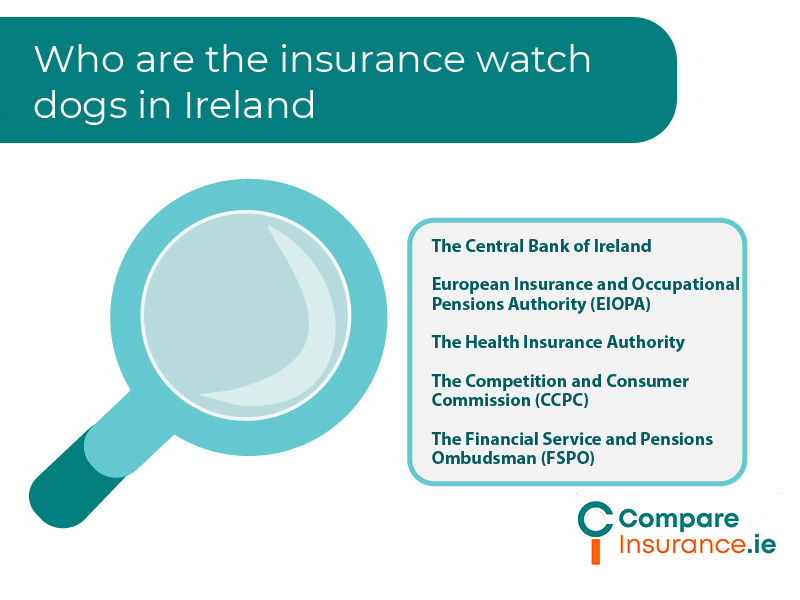
The Central Bank
The Central Bank of Ireland authorises, regulates, and supervises the operations of insurance companies in Ireland. It is the primary Irish watchdog for insurance.All insurance companies must be authorised by the Central Bank to carry out their business in Ireland.
The Solvency II Directive, which was transposed into Irish law as the European Union (Insurance and Reinsurance) Regulations 2015, requires the Central Bank to consider the following in authorising an insurance company as well as having regard for consumer issues eg. competition law.
The Central bank considers these factors to ensure that insurance companies are financially sound and have sufficient resources to conduct insurance business.
As Ireland is an EU member state, insurance companies are subject to EU law, as well as the Consumer Protection Act 2007 and the Consumer Insurance Contracts Act 2019 which increases consumer protections. The sale of insurance in Ireland is also subject to the terms of the Sale of Goods and Supply of Service Act 1980.
New legislation from 1st July 2022 offers further protection to the consumer in insurance pricing and insurers will be required to carry out an annual review of their motor and home insurance pricing policies in order to offer the best prices to new and existing customers.
European Insurance and Occupational Pensions Authority
EIOPA operates at the EU level as a watchdog to promote stability, effectiveness and efficiency of the insurance and occupational pensions sectors at a time of uncertainty and change.
They aim to enhance consumer protections and to promote a regulatory framework as well as supervision of the insurance and pensions sector in the EU member states.
The Health Insurance Authority
The Health Insurance Authority is the statutory regulator and watchdog of private health insurance in Ireland.Health insurers in Ireland must be registered with the Health Insurance Authority.
The Health Insurance Acts iu 1994- 2015 concern health insurance in Ireland and legislate for:
The role of the HIA is to ensure access to health insurance for all consumers under these pillars.These are aimed at protecting more vulnerable health insurance customers from being discriminated against by health insurers.
The HIA website also offers extensive information for consumers on all of the health insurance plans and prices available on the Irish market.They also offer information on:
The Health Insurance Authority also handles consumer complaints regarding health insurance companies. If your complaint to your health insurer cannot be resolved by them, then you can make a complaint to the Health Insurance Authority.
The CCPC (Competition and Consumer Protection Commission)
The CCPC (Competition and Consumer Protection Commission) has a statutory role in promoting and enforcing compliance with consumer protection and competition law in Ireland as well as assessing mergers and enforcing product safety standards.
They also have a role in providing information for businesses to assist them to comply with the law as well as informing and educating consumers about their rights and personal finance.
The CCPC website has information for consumers on choosing and purchasing insurance and their rights.They have extensive information and advice on navigating the array of insurance products available as well as choosing appropriate insurance cover for your circumstances.
Making a complaint about a financial service:
The Central Bank’s Consumer Protection Code sets out guidelines for financial services providers (including insurance companies and insurance intermediaries) on consumer protection, including how complaints are handled.
Among other protections, the insurance company or intermediary must act honestly, fairly, and professionally in their dealings with you and act in your best interest.
They must give you information to make an informed decision and they must gather enough information from you about your needs and offer you a product that is suitable for those needs.
Insurance companies and intermediaries authorised and supervised by the Central Bank must not mislead you about their product(s) and must not unduly influence or pressurise you to buy a product or service.
They must be upfront about the terms and conditions of their products and they must also be clear about their charges, as well as giving you 30 days notice of any new or increased charges.
Financial services companies must also have a mechanism to handle complaints promptly and efficiently.All insurance companies must, by law, have a complaints handling process for consumers who are unhappy with the service they are or have received.
The Financial Services and Pensions Ombudsman
The FSPO (Financial Services and Pensions Ombudsman) is an independent, statutory body which provides a free service to consumers and small businesses who wish to make a complaint about or are unhappy with the services of financial institutions and pension providers, including insurance companies. The FSPO aims to be fair, transparent, and accessible to consumers.
The Financial Services and Pensions Ombudsman offers a free dispute resolution service for consumers.This provides independent mediation between a dissatisfied consumer and their financial institution.The FSPO is a statutory body, and their decisions are legally binding on the financial institution.
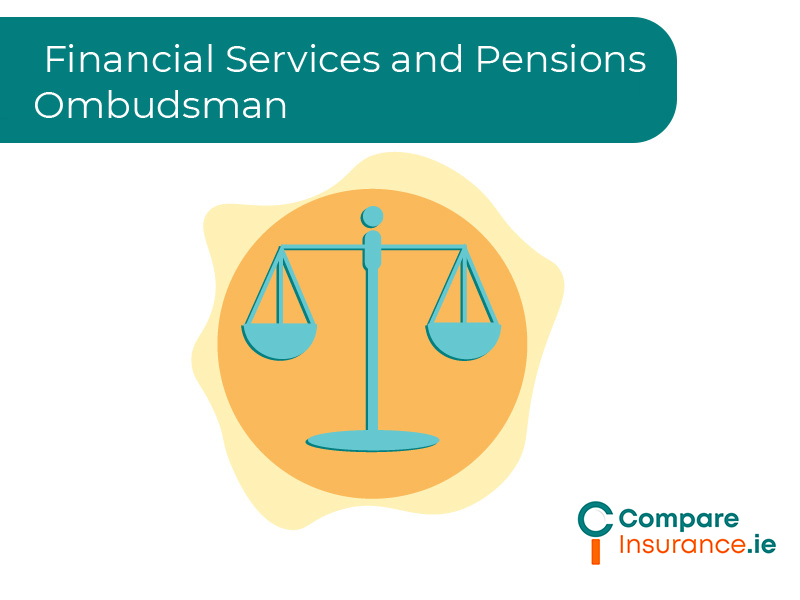
The Complaints Process
The The Financial Services and Pensions Ombudsman (FSPO) has a three step complaints process:
Insurance Watchdogs and Protections for Consumers
The complexity of insurance products, and the consequences to your personal finances of your insurance not protecting you adequately or your insurance company not performing as you expected, mean that it is essential the insurance companies are subject to oversight and that the consumer is protected.This is the role of the various insurance watchdogs.
From EU regulation of insurance and pensions, to Irish Central Bank and Health Insurance Authority authorisation, supervision and regulation, there is strong oversight of the Irish insurance market.
Consumer protection and information from the CCPC, HIA, Central Bank, and FSPO also aim to ensure that the consumer has information to make decisions about insurance and has a voice when things go wrong.
The key advice for consumers is to ask questions.Compare insurance products at the point of purchase and if you are unsure about anything, ask your insurance company or your insurance intermediary to clarify.
Contact us for advice.
Our advisors are available to answer your questions and to offer the best advice for you in purchasing insurance.
We want to get you the best cover at the best price so that you have peace of mind that you have protection in place should things go wrong.

Author: Séamus Ó Doirín | Chief Insurance Editor
Séamus Ó Doirín is a Donegal based QFA who has been writing about insurance since 2020. His main focus is getting people the best value for insurance in the Irish market. His writing covers all areas of insurance and is a valuable part of the Compare Insurance team.
